24.Free Friends Forum: TRUSTING OUR CHILDREN, TRUSTING OURSELVES
Human Rights for All Ages: Youth as Self-Determined Persons Not Trained Pets
FREE FRIENDS FORUM Join Us For Spirited Discussion On Zoom
Saturdays 9pm; Sundays 9am (New Zealand Time)
Jack Carney is inviting you to a scheduled Zoom meeting.
Join Zoom Meeting
https://us06web.zoom.us/j/8245320024
Meeting ID: 824 532 0024
Passcode: 772388
New Zealand Time Converter
https://dateful.com/convert/new-zealand
ESCAPE FROM CHILDHOOD Growing Without Schooling, March 7, 2015. 0:39
DR. THOMAS GORDON ON PARENT EFFECTIVENESS TRAINING - A SHIFT AWAY FROM POWER AND CONTROL ParentEffectivenessTraining, June 14, 2017. 1:09
AUSTRALIA’S WORLD-FIRST SOCIAL MEDIA AGE BAN SPARKS GLOBAL DEBATE News Australia, Nov 29, 2024. 3:24
BREAKING: AUSTRALIA PASSES LANDMARK UNDER-16S SOCIAL MEDIA BAN Dystopia Down Under, Rebekah Barnett, Nov 29, 2024
The Senate inquiry into the bill particularly noted overwhelming parental support for the bill, as parents grapple with the collective action problem of how to limit teens’ time on social media without being the only grinch on the block. In Australia, the reception has been mostly positive. Just over three quarters of Australians (77%) support the social media ban, according to polling by YouGov - up from 61% in August.
WHY AUSTRALIA IS SETTING A MINIMUM AGE OF 16 FOR CREATING A SOCIAL MEDIA ACCOUNT. Andrew Leigh, Nov 27, 2024
Introduction from Jon Haidt: Australia is correcting two of the most consequential blunders in the creation of the early global internet: the setting of the “age of internet adulthood” to 13, combined with the stipulation that companies have no responsibility at all to verify that anyone actually is 13. Both of these blunders were made in a single well-meaning law passed by the US Congress in 1998: The Children’s Online Privacy Protection Act, known as COPPA. (See here for the history of COPPA)
Birthrights by Richard Evans Farson, January 1, 1974 Amazon https://tinyurl.com/k3fsrkj4
Escape From Childhood: The Needs and Rights of Children by John Holt, June 1, 2013. Amazon. https://tinyurl.com/e3pex29k
ON JOHN HOLT AND THE RIGHTS OF YOUNGER PERSONS
John Holt, the American man who got homeschooling started in the U.S. and who wrote many good books on childhood, especially “Escape from Childhood”, understood how childhood is too often a cage of power (protective/restrictive) created and maintained by parents to control their children.
Quotes from Escape from Childhood by John Holt:
“Most people who believe in the institution of childhood as we know it see it as a kind of walled garden in which children, being small and weak, are protected from the harshness of the world outside until they become strong and clever enough to cope with it. Some children experience childhood in just that way. I do not want to destroy their garden or kick them out of it. If they like it, by all means let them stay in it. But I believe that most young people, and at earlier and earlier ages, begin to experience childhood not as a garden but as a prison. What I want to do is put a gate, or gates, into the wall of the garden, so that those who find it no longer protective or helpful, but instead confining and humiliating, can move out of it and, for a while, try living in a larger space. If that proves too much for them, they can always come back into the garden. Indeed, perhaps we all ought to have walled gardens to take refuge in when we feel we must.
“I propose instead that the rights, privileges, duties and responsibilities of adult citizens be made available to any young person, of whatever age, who wants to make use of them. These would include, among others:
1. The right to equal treatment a the hands of the law
2. The right to vote, and take full part in political affairs.
3. The right to be legally responsible for one's life and acts.
4. The right to work, for money.
5. The right to privacy.
6. The right to financial independence and responsibility
7. The right to direct and manage one's own education.
8. The right to travel, to live away from home, to choose or make one's own home.
9. The right to receive from the state whatever minimum income it may guarantee to adults citizens.
10. The right to make and enter into quasi-familial relationships outside one's immediate family-i.e., the right to seek and choose guardians other than one’s own parents and to be legally dependent on them.
11. The right to do, in general, what any adult may legally do.
Here for free download https://archive.org/details/EscapeFromChildhood
JOHN HOLT AND RICHARD FARSON ON THE RIGHTS OF CHILDREN. Growing Without Schooling, March 7, 2015. 48:36 This is an interview from the Literary Guild's radio show First Edition from 1974. Richard Farson, the author of Birthrights: A Bill of Rights for Children (out of print) and John Holt, who wrote Escape From Childhood: The Needs and Rights of Children (Amazon http://amzn.to/19CPBir ) , are interviewed about their perspectives on children's rights and they provide some fascinating insights into why justice for children is important yet so hard for adults to discuss rationally.
HOLT 21:04 “I'm a very old-fashioned person, and I believe in human liberty, in the sense that I don't think very many people do. And what I object to about the condition of slavery--and being a slave has nothing to do with whether you are well treated or not. Some slaves were exceedingly well treated. But what I hate and fear about the idea of people growing up in a condition of slavery is that it gives them most of them the minds and the hearts of slaves. You don't learn to love freedom by being a slave. You learn to believe that that's all you're capable of. And I'm terribly afraid of where this process may lead us.” END
The source for this audio is the Internet Archive
https://archive.org/details/NeedsAndRightsOfChildrenPart1
WHY IT SUCKS TO BE YOUNG Andrewism, Feb 4, 2021. 19:14 We don't talk enough about how our society treats young people and children. Let's change that.
INTERVIEW WITH TEACHER-WRITER JOHN HOLT ON ISSUES WITH EDUCATING CHILDREN - APRIL 1974 SMU Jones Film, July 27, 2024. 2:07
JOHN HOLT - EDUCATION AND CHILDREN (VIDEO RE-EDIT). Mike Lamentola, Jan 14, 2014. 2:52
John Caldwell Holt was an American author and educator, a proponent of unschooling, and a pioneer in youth rights theory.
JOHN 2:10 “[Homeschoolers] will hear what I am saying about children...they are autonomous and self-motivated learners and even those who've made begin skeptical will soon see in the lives of their children evidence to support that, they're ready to move in that direction; but the general public like the majority of schools is deeply committed to well, deeply committed against freedom, deeply committed to the idea that children won't do anything good unless somebody makes them”
UNSCHOOLING - JOHN HOLT - AN EXCERPT FROM THE DOCUMENTARY CLASS DISMISSED ClassDismissedMovie, June 22, 2015. 3:04
This is an excerpt from the documentary Class Dismissed: A Film About Learning Outside of the Classroom.
265 A REVIEW OF ESCAPE FROM CHILDHOOD BY JOHN HOLT. Tvlpodcast, Aug 29, 2017. 17:49
John Holt was a leading figure in the school reform movement, who became increasingly interested in how children learn outside of school—what he called “unschooling.” He wrote many influential books about alternatives to schooling and he helped start the modern homeschooling movement. His book Escape From Childhood provides a thought-provoking critique of how most adults treat children, and a vision of how we could treat children with dignity, giving them greater freedom.
NARRATOR 4:25 “the argument he's making about why them being cut off in the adult world is bad it's because they then are stuck in this sort of bubble prison of being treated kind of like the pet or slave of the adults who control them…”
A LIFE WORTH LIVING: A DOCUMENTARY ABOUT JOHN HOLT. Growing Without Schooling, Sept 16, 2015. 20:14
Created for the Growing Without Schooling (GWS) 20th anniversary conference in 1997, we sold this as a DVD for a bit and then it went out of existence, so to speak. To celebrate the 30th anniversary of John Holt's death (Sept. 14, 1985) I am making this documentary available online 18 years since Susannah and I narrated it live, as a slide show, at our conference. Many of the photos and video snippets are online already, but I think they congeal into a unique story about John Holt's life and work in this presentation. Nearly all the photos were taken by John, and the cello playing at the beginning is by John, too. In writing the script I tried to use Holt's own words, as well as his own voice from various recordings, to give an accurate picture of how his vision and ideas for changing education also changed as he grappled with the realities of institutional complacence and adult resistance to viewing children as natural, eager learners.
JOHN HOLT INTERVIEWED ON NEW ENGLAND TODAY Growing
Growing Without Schooling, March 7, 2015. 22:36
John Holt interviewed on the television show New England Today. John is joined by Harvard undergraduate and homeschooler Joel Fields. Joel attended Harvard at the same time Grant Colfax did, but he didn't get as much press. This was filmed on May 2, 1985, just four months before John died from cancer, so this may be among the last interviews he did.
HOW CAN EDUCATION BE CHANGED? (WITH JOHN HOLT) - THE BEST DOCUMENTARY EVER. Kaleigh Beer, Nov 16, 2017. 1:03:31
More on education: Recorded in 1983. This recording is used with the permission of Holt . John provides some expansive answers to questions about children, society, schools, and homeschooling in this raw footage. I don't know who the interviewer is . John Holt's book TEACH OUR OWN had just been printed and controversy over homeschooling was quite strong in 1981, when Holt joined two homeschooling . Created for the Growing Without Schooling (GWS) 20th anniversary conference in 1997, we sold this as a DVD for a bit and then it went out of existence, so to .
CLASS DISMISSED (HOME SCHOOLING, THE WAY OF FREEDOM). The Wake Up Project, April 26, 2021 1:29:53
A Film About Learning Outside of the Classroom ,It covers one family's journey through their decision to exit the public school system and through several months of trial and error to find their own niche in the homeschooling world. It is an excellent source of information for anyone interested in alternative education. This movie will be my new 'go to' source to recommend for those looking to start on a journey outside the educational establishment. While it promotes unschooling above other options, it does cover multiple trends in homeschooling to give folks an overview of popular options and hopefully the confidence to chart their own course for the sake of their children. Topics covered include de-schooling, classical homeschooling, charter independent study, and unschooling.
EXTRAS
RICHARD HISKES - SUFFER THE CHILDREN: A THEORETICAL FOUNDATION FOR THE HUMAN RIGHTS OF THE CHILD. EIHR: Educators' Institute for Human Rights, Dec 16, 2022. 1:01:16
START HISKES 18:10 “the argument that giving children right children's rights will conflict with the rights of parents. Do parents have rights? I mean do parents have do parents have rights that are different than the rights they have as humans or as Citizens? What about Grandparents?”
TRUSTING OUR CHILDREN, TRUSTING OURSELVES (7 CD set) Audio CD – March 1, 2006, by Naomi Aldort
https://www.amazon.com/Trusting-Our-Children-Ourselves-set/dp/1887542353
SCOTT GALLOWAY EXPLAINS WHY AGE GATING SOCIAL MEDIA IS BOTH NECESSARY AND DOABLE. Scott Galloway, Dec 03, 2024
The companies can do it, but they're incentivized to fight it
Introduction from Jon Haidt:
Why do modern societies impose minimum legal ages for many activities and products, such as drinking, smoking, gambling, porn, driving, skydiving, or watching R or X-rated movies? There are many reasons, but these four stand out for this list of activities:
1. Graphic sexuality
2. Graphic violence
3. Addiction risk
4. Significant health/safety hazards
For these kinds of activities, we give adults great leeway to make their own decisions. They have mature prefrontal cortices; they are better than children at inhibiting impulses and evaluating risks. When it comes to children, however, there is a broad consensus that companies who profit from children by exposing them to any of these four harms must stop. We understand that these companies—which typically place the interests of their shareholders above those of any other stakeholder—must be strongly incentivized to enforce minimum age requirements by the threat of lawsuits, fines, and penalties. Unless they are social media companies.
AGE GATING By Scott Galloway
Social media is unprecedented in its reach and addictive potential — a bottomless dopa bag that fits in your pocket. For kids it poses heightened risks. The evidence is overwhelming and has been for a while. It just took a beat to absorb how brazen the lies were — “We’re proud of our progress.” Social media can be dangerous. That doesn’t make it net “bad” — there’s plenty of good things about it. But similar to automobiles, alcohol, and AK-47s, it has a mixed impact on our lives. It presents dangers. And one of the things a healthy society does is limit the availability of dangerous products to children, who lack the capacity to use them safely. Yet, two decades into the social media era, we permit unlimited, all-ages access to this dangerous, addictive product. The reason: incentives. Specifically, the platforms, dis-incentivized to age-gate their products, throw sand in the gears of any effort to limit access. To change the outcome, we must change the incentives.
AUSTRALIA PASSES “AGE VERIFICATION” BILL TO KEEP CHILDREN UNDER 16 OFF OF SOCIAL MEDIA – BACK DOOR TO DIGITAL ID REQUIREMENTS FOR EVERYONE Medical Kidnap, Brian Shilhavy, Dec 2, 2024
From the perspective of the consumer who uses social media, however, it became obvious that “age verification” requirements to access online services effectively mean that EVERYONE then will eventually have to prove their age, NOT just children.
A few Australian lawmakers clearly saw this, and warned the public that this was a back door way of rolling out government-issued national IDs to everyone in Australia.
Their voices were largely unheard and probably suppressed, as I saw nothing about this in the U.S. media until after the bill passed.
I agree with Dr. Hartnett that everyone should RESIST and NOT comply with obtaining Government-issued digital IDs.
If enough people refuse to comply, they will not be able to accomplish their goals, because compliance is necessary for this to work. https://tinyurl.com/37x93umv
BREAKING: AUSTRALIA PASSES LANDMARK UNDER-16S SOCIAL MEDIA BAN Dystopia Down Under, Rebekah Barnett, Nov 29, 2024
The bill, which has been praised internationally, was rushed through with minimum scrutiny
Australia is the first country to set the minimum age of social media access to 16, after a landmark bill passed in the Senate late into the evening on the final sitting day of the year.
Backed by both major parties, the ground-breaking legislation “seeks to set a new normative value in society that accessing social media is not the defining feature of growing up in Australia,” said Communications Minister Michelle Rowland.
“It's about making sure children have a childhood and parents have peace of mind,” said Prime Minister Anthony Albanese, assuring Australian parents, “We’ve got your back.”
New laws welcomed in Australia and abroad
Australia’s move to keep kids and teens off social media has been lauded internationally, including by prominent author Jonathan Haidt, whose book The Anxious Generation: How the Great Rewiring of Childhood Is Causing an Epidemic of Mental Illness raised the alarm over the harms of excessive smartphone and social media use to young people’s mental health, particularly in girls.
“Australia is correcting two of the most consequential blunders in the creation of the early global internet: the setting of the “age of internet adulthood” to 13, combined with the stipulation that companies have no responsibility at all to verify that anyone actually is 13,” wrote Haidt on Substack this week.
“We applaud Australia for stepping up and doing the right thing.”
Several U.S. states - Louisiana, Texas, Florida, and Utah - have legislated to limit access to social media for teens, but the Australian Government is the first to take this step at a federal level.
In Australia, the reception has been mostly positive. Just over three quarters of Australians (77%) support the social media ban, according to polling by YouGov - up from 61% in August.
The Senate inquiry into the bill particularly noted overwhelming parental support for the bill, as parents grapple with the collective action problem of how to limit teens’ time on social media without being the only grinch on the block.

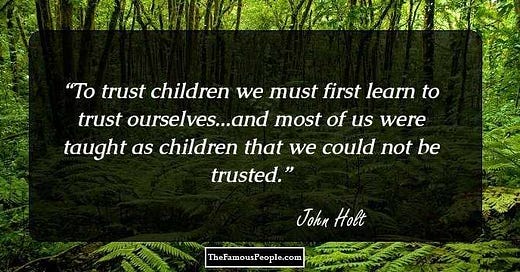



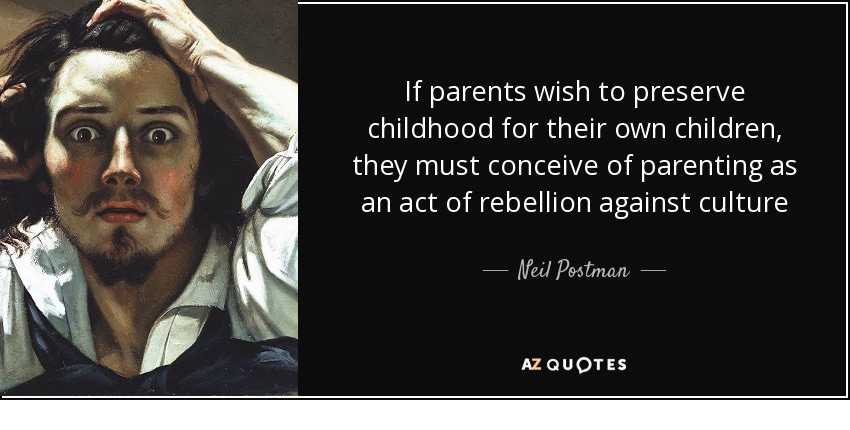
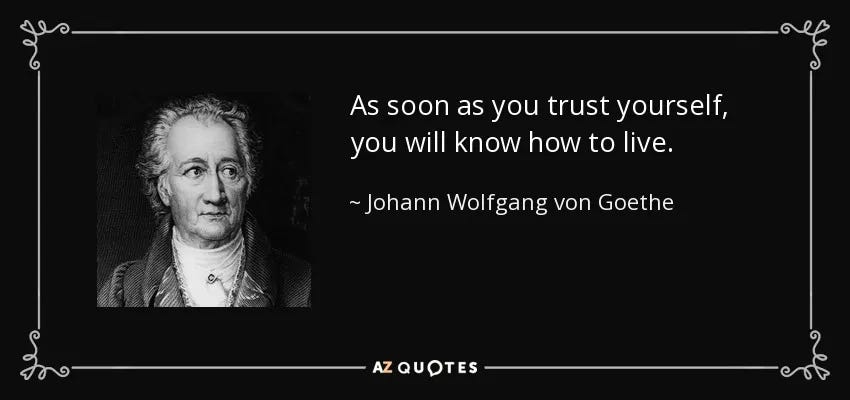





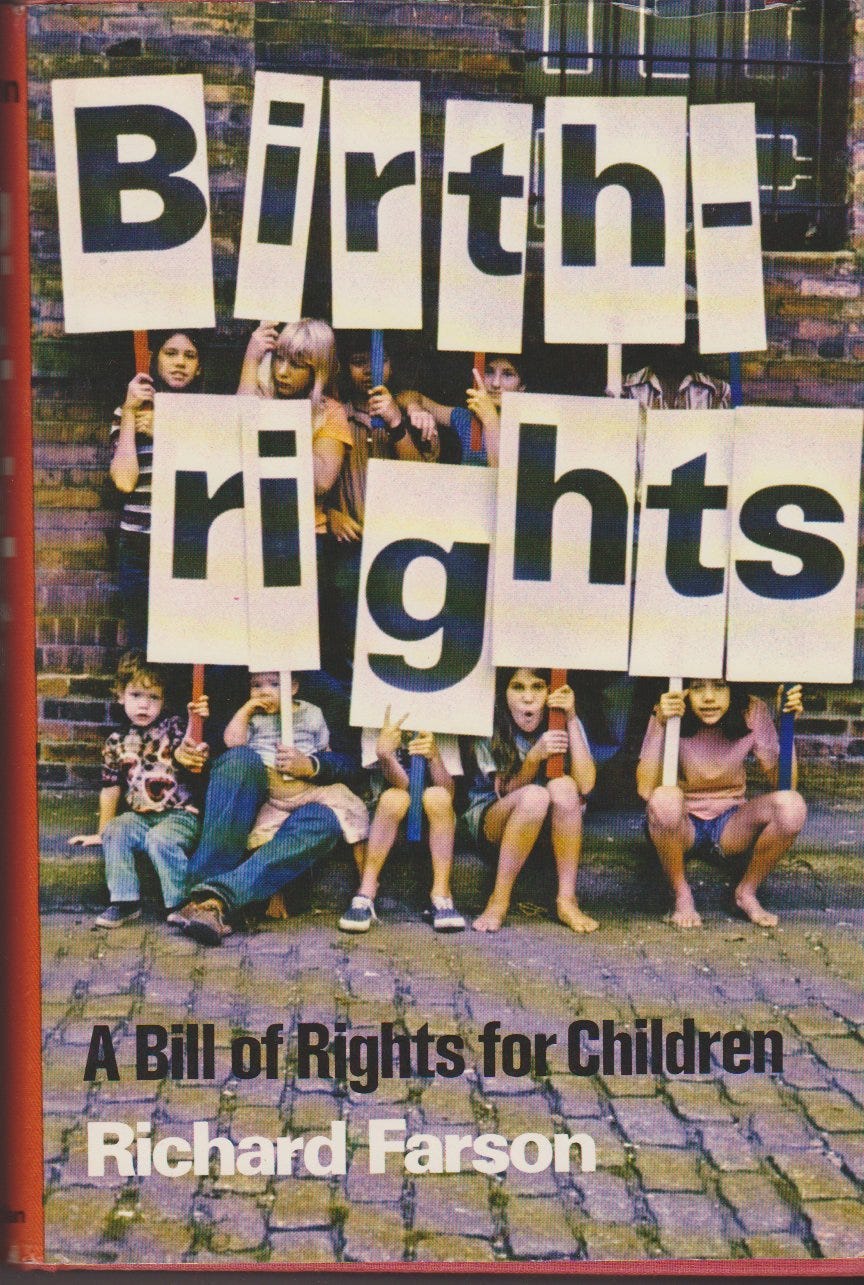

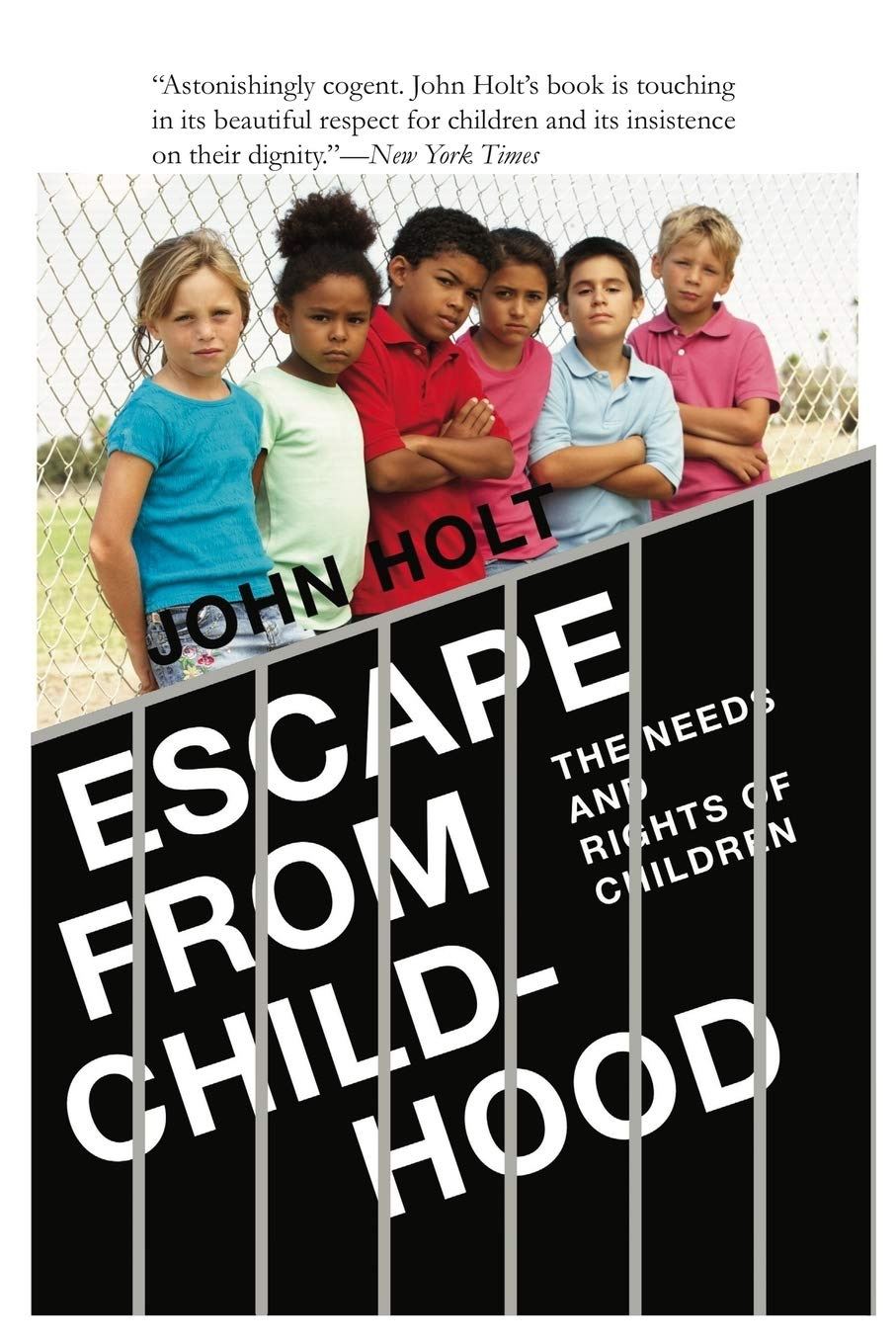


And now we see parentarchy coming back with a vengeance after it seemed to be on the wane. Exhibit A: Australia's social media ban, along with Florida's and others too.
Hi Jack. My comment, as promised, based on notes I jotted down to prepare for yesterday.
As noted during our live session, trusting our children and saying they have rights isn't the same claim. Does trust work this way? Francis Fukuyama wrote a definitive work on social trust entitled, simply TRUST and depicted social trust as the "glue" that holds societies together. How does social trust come about, in that case? Through observations of consistent interactions over a long period of time. We don't have that with children, obviously, but we can educate them in the traditional morals that have passed the test of time ("don't hurt people" "don't steal" "treat others as you'd prefer to be treated" and so on).
We all come into this world the same way: naked, helpless, crying. As small bundles of unrealized potential. What are the immediate conditions of life, or needs, that an infant must have if it is to live? Food and water; protection from harm; early nurturing that provides a sense of belonging and safety. I'm not sure what it means to say that the infant has a "right" to these. I wonder if our "rights" language is confused somehow.
Coming to where my discussions of such topics generally land these days: the *intrinsic value* of all persons. Since all persons have intrinsic value and all children are persons, then all children have intrinsic value (the AAA syllogism I mentioned during our talk). I would argue that intrinsic value applies to the unborn, since the unborn have the same human DNA as the born. If we separate intrinsic value from possessing a full set of human DNA, we start to get into trouble because we can exclude entire groups out of the moral community by fiat. Germany did that with the Jews; Chinese Communists with the residual "bourgeoisie" in their midst; America does it with the unborn.
To my mind, intrinsic value implies some do's and don't's:
- don't neglect an infant or a child.
- do no harm, physical or verbal.
- respect the child's personhood in an age-appropriate fashion
- do allow children to *explore their surroundings* assuming as much safety as possible
- don't allow them to come to harm, e.g., from wandering into a busy street.
I came up with a few more "oughts" I thought I'd share: parents *ought* to encourage:
- learning: including allowing children to do things with their hands, teaching them to read and giving them books (this was done with me), allowing regular interactions with adults assuming the adults are always trustworthy.
- learning what? Real states of affairs (e.g., the Earth goes around the Sun; crops grow in the spring, etc.) How A causes B. How actions have consequences. How discoverable natural principles govern the workings of the universe. All age-appropriate, of course.
- giving children chores to do, starting perhaps with simple things like helping to set the table for supper or drying the dishes afterwards, progressing to cleaning one's room, cleaning one's bathroom, as this teaches responsibility.
- teaching them to set goals, and how to organize objectives around them (objectives being day-to-day commitments that go in a particular direction such as doing one's math homework; goals being longer term, such as making an A in the course). How important is consistency, and developing good habits that are internalized and become automatic.
- teaching them to see all others as selves, like themselves, so they can better process and internalize the rule to treat all others as they'd like to be treated. (This is actually more basic than 'do no harm'.)
- consistent behavior, passed from parents who need to set examples as do other adults who interact with children and adolescents, will enable children to build trust by being trustworthy, because they're now on a path to responsible adulthood:
- able to care for themselves healthwise (I advocate primary prevention)
- able to seek out the necessary education to achieve goals (be lifelong learners)
- able to sustain their lives monetarily, assuming the money political economy lasts
- able to work with, and alongside, others even if those others disagree with them about some things, because they understand the distinction between what they can control and what they can't control.
That'll do it for now. Lengthy comment, I know. Responses welcome.